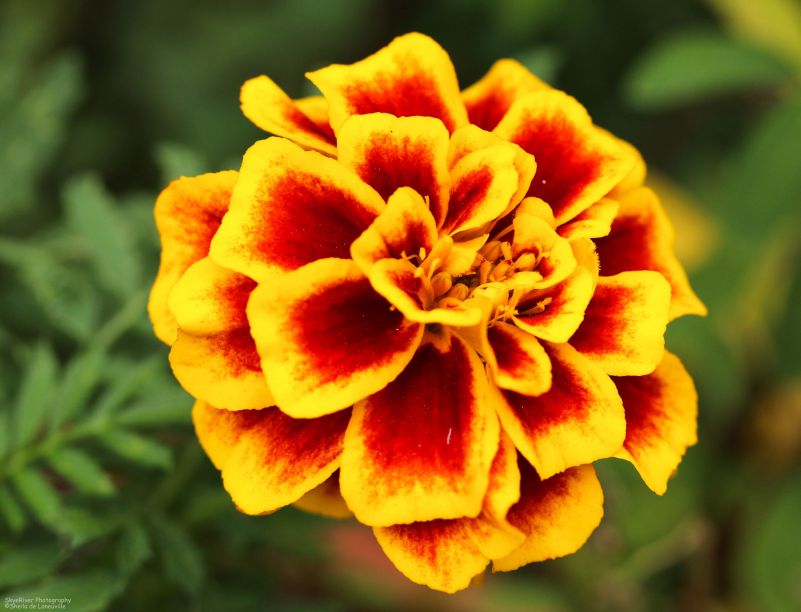Companion Gardening and Natural Pest Control
Companion planting, a practice used by organic and biodynamic gardeners, is the term given when one plants certain types of plants near each other because they are mutually beneficial. In the case of growing food in a garden plot, there are a number of flowers you can plant for natural pest control.
Borage
Commonly grown and used for culinary purposes in Britain. This annual produces star-shaped flowers and is wonderful used in herbal teas, tinctures and leafy green recipes.
Borage deters hornworms and cabbage worms and can help all plants increase their disease resistance.
Chrysanthemums
These beautiful flowers are quite common in flower arrangements, as they come in a wide spectrum of colors.
Chrysanthemums contain a chemical called pyrethin that’s toxic to insects but safe for human and animal consumption. Aside from planting these colorful flowers around your garden bed, you can also make a tea from the flowers and use it on root nematodes and to repel Japanese beetles.
Clover
This common soil cover grows as grass does, providing a thin, cohesive layer of green over the soil. There are over 300 varieties of clover to choose from, but the most popular is marked by small green clovers with tiny pink flowers.
Clover has been known to ward off pests completely when used as ground cover in garden beds. Plant it around cabbage to prevent cabbageworm and aphids from taking hold.
Lavender
Known for its delicate, violet leaves and pleasing aroma, lavender is used in everything from potpourri to tea and baked goods to frosting.
Lavender not only repels pests in your garden, it also smells (and looks) great. It’s used to repel most insects you’d want to keep out of the garden, particularly fleas, moths and mosquitoes.
Marigolds
Marigolds are a popular garden flower as they are cheap to obtain and contain vibrant orange hues.
Plant the scented varieties of marigolds to deter pests. The French Marigold variety is recommended for keeping whiteflies away from tomatoes, and they protect the health of the soil under the plants.
Other combination companion options which help with pest control and add diversity to ones garden are:
Cucumbers – plant nasturtiums and radishes for cucumber beetle control
Asparagus – tomatoes, parsley or basil will help control asparagus beetles.
Potatoes – horseradish to repel Colorado potato beetles
Eggplant – catnip will deter flea beetles
Tomatoes – basil will repel tomato hornworms
Carrots – onions control some nematodes and rust flies
Corn or Squash – peanuts inter-planted will produce a higher yield for all of these crops
Your specific growing goals will determine which plants combinations you choose. Do you want to attract beneficial insects to your veggie garden? Repel the bad guys away from your fruit trees? Or mask the delicious odor of your cabbages or your tender rose buds? Maybe you’re interested in conserving water? Regardless of your gardening direction, these tips will surely help you defend against some of those unwanted critters, and improve your home gardening.



